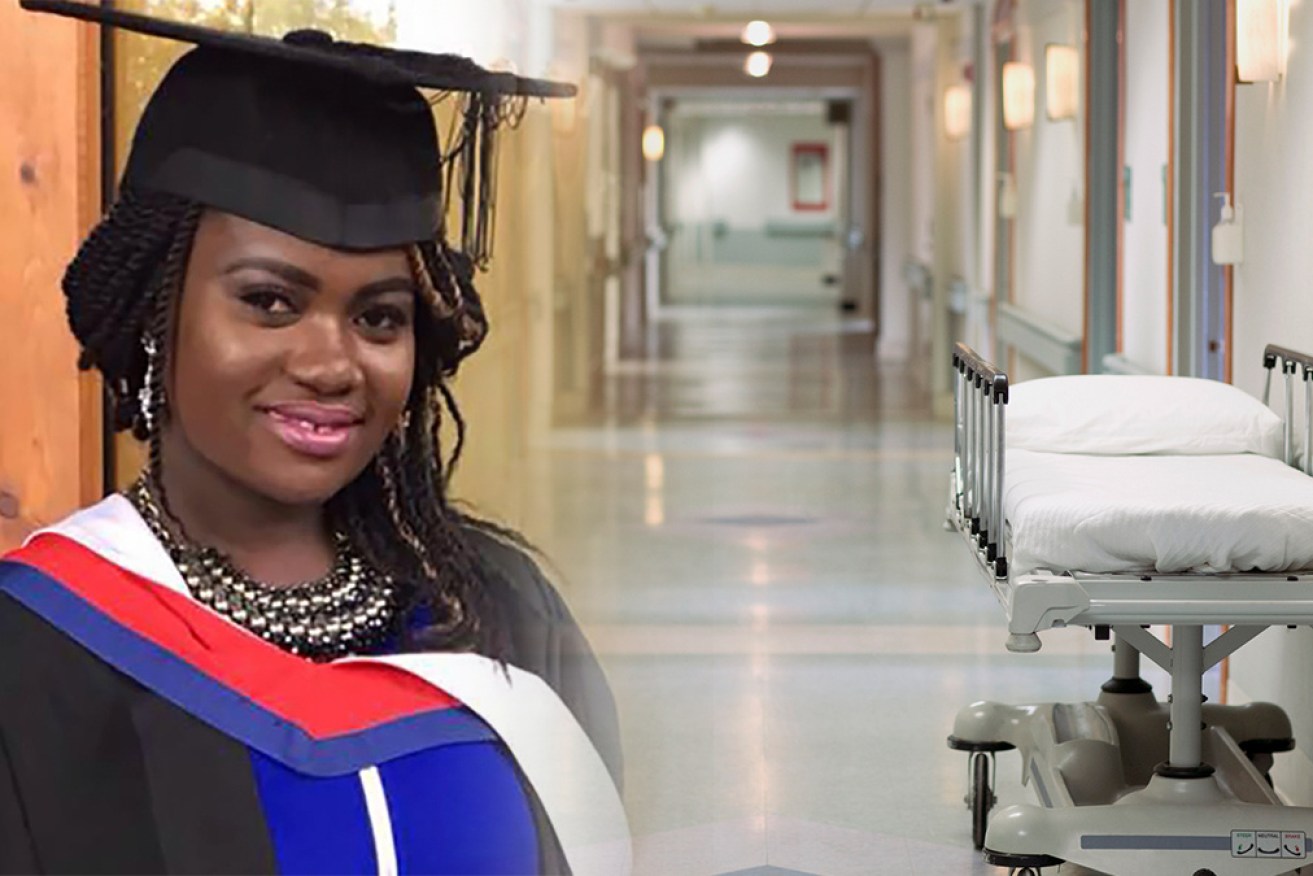After the death of a coronavirus-infected nurse, what are the risks to mums and babies?


Mary Agyeiwaa Agyapong died of COVID-19 days after an emergency cesarian was performed to deliver her baby. Photo: Facebook/TND
The death of a young nurse who delivered her baby just days before succumbing to the coronavirus has heightened concerns for the safety of pregnant healthcare workers.
Soon after being admitted to hospital with the coronavirus, Mary Agyeiwaa Agyapong was rushed into surgery for an emergency C-section.
The 28-year-old nurse from the UK had neared the end of her pregnancy when she was forced to give birth to save her baby daughter.
Ms Agyapong died this week at Luton and Dunstable University Hospital, where she had worked for five years.
The hospital said the baby, who was named Mary after her mother, was “doing very well”.
It noted Ms Agyapong had not been treating COVID-19 patients and her last shift was on March 12.
It is unknown if she contracted the virus while working at the hospital, given she returned a positive test result on April 5.
What healthdirect advises
The Australian government’s healthdirect website advises pregnant women to stay away from vulnerable people – including those in hospitals.
The website says evidence suggests pregnant women who test positive aren’t at an increased risk of becoming seriously ill compared to the general population.
In fact, they’re told to expect mild to moderate flu-like symptoms.
And, most pregnant women will fully recover from COVID-19 without placing their unborn baby at risk.
The site added there have been unconfirmed cases of mothers transmitting the virus to their baby, but they’re still in the early stages of being studied.
The site suggests babies whose mothers contract COVID-19 will not be harmed or placed at risk of ongoing problems.
The New Daily asked health departments around the country about what pregnant women should do if they work at a hospital.
How federal, state and territory departments responded

Health departments across Australia have addressed what’s being done to protect pregnant healthcare workers. Photo: Getty
Western Australia’s Department of Health referred to a 16-page online document that talked about managing coronavirus infections in pregnant women.
In it, it said hospitals should consider deploying pregnant staff to services where the risk of exposing them to the coronavirus is low.
Queensland Health said it was unable to give advice specific to pregnant staff.
“While the health and wellbeing of our workforce remains a priority, Queensland Health is unable to provide specific advice on how individual employee work arrangements should be handled in order to meet current health advice,” a spokesperson said in a statement.
More generally, Queensland Health is encouraging vulnerable healthcare workers who have concerns about their safety to talk to their manager.
That could mean adjusting work hours, working from an alternative location, being temporarily redeployed to another role and/or limiting exposure to the clinical environment and interaction with confirmed or suspected COVID-19 patients.
NSW Health said it follows the guidance of the Royal Australian and New Zealand College of Obstetricians and Gynaecologists (RANZCOG), which advises healthcare services to be sensitive to the anxieties of pregnant staff and assign them to lower-risk duties.
Other options include getting them to work from home, if possible, or encouraging them to take a leave of absence.
In a statement, NSW Health quoted what RANZCOG says on its website: “RANZCOG recommends that, where possible, pregnant healthcare workers be allocated to patients and duties that have reduced exposure to patients with, or suspected to have, COVID-19 infection”.
A NSW Health spokesperson added: “Currently there is no evidence of an increased risk of miscarriage, teratogenicity or vertical transmission of the COVID-19 virus.”
Echoing those comments, the federal Department of Health said: “As with all healthcare workers, their risk needs to be assessed and mitigated as required with consideration of the characteristics of the worker, the workplace and the work.”
NT Health operates two health services, each with its own advice.
The Top End Health Service (TEHS) which services Darwin, Katherine, East Arnhem and the Barkly regions, recommends a “precautionary approach” is taken for pregnant staff to ensure they are not caring for COVID-19 positive patients.
“All staff identifying as pregnant or vulnerable generally discuss with their manager and an appropriate action plan is put in place, which includes reallocation to different clinical area or non-clinical duties,” the TEHS spokesperson added.
The Central Australia Health Service, which covers Alice Springs, Tennant Creek and central Australia, did not respond by deadline.
SA Health said: “While the WHO [World Health Organisation] advice is that there is no higher risk to pregnant women or evidence that COVID-19 is harmful to unborn babies, our staff can speak to line managers about suitable work arrangements or leave.”
Health departments in Tasmania, Victoria and ACT were also contacted for comment.








